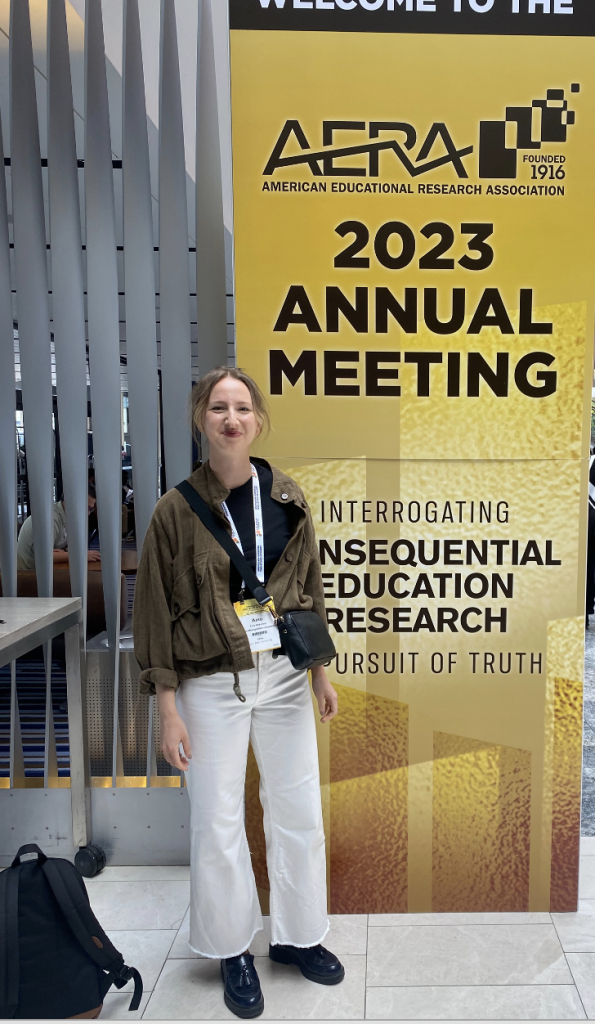By Aino Ukkonen
Hi from Michigan State University (MSU)!
I was so delighted when I got the news that I could go on an exchange to the US and to be hosted by Dr. Aman Yadav at MSU. I am visiting Prof. Yadav and his Justice, Education and Technology Lab at the Department of Counseling, Educational Psychology, and Special Education, College of Education. Yadav has extensive experience with researching Computational Thinking (CT) and is one of the most cited scholars in the field. To get to be a part of his research group for the three months gives insight in both the knowledge that the research group has built up but also on new ideas on where CT and computer science education might go from here.
During my first month here, I have gotten to know the university and attended meetings. I took part in Yadav’s and his colleague Michael Lachney’s research lab meetings, where we discuss papers, research ideas and present our work. I presented my PhD-project to the group and got valuable feedback and ideas for the work I am doing on assessment of CT. It was especially encouraging to hear that the group thought that this was a relevant and interesting topic to research. The graduate students in science education also invited me to their writing group, where we read and discuss each other’s work. I was impressed by the open and welcoming atmosphere between graduate students here.
There have been several events to attend to at the college of education, a vibrant research community. A MSU alumni, Niral Shaw, gave a talk on racism in STEM, and presented how STEM education can in fact be hindering social and racial justice by recreating existing norms and practices. His somewhat though provoking idea was, in contrast to current agendas on STEM and CS research, to reduce the amount of STEM education in schools – unless it specifically contributes to the increased social and racial justice in education.
Researchers in education science are, rightfully so, concerned with the politics in the US today. In Florida for example, several laws have come into force, restricting the teaching of African-American and Black history, race and racism, and leading to teachers being afraid of losing their jobs if they include these in their teaching. This development was also an overarching theme at the AERA conference in Chicago, which I also attended.

Yadav and several of his graduate students are researching such as critical CS education, where they are exploring the potential injustice created by Computer Science (CS) education. The discourse behind the CS and CT initiatives has traditionally been dominated by questions of educating work force for the technology industry, especially in the US, but this jargon is now under scrutiny. There are ethical and societal and structural challenges which might not be solved if we do not attend to CS and CT education with a critical lens as well.
During my stay here I was happy to be involved with one of Yadav’s research projects with elementary school teachers who have taken part in a professional development course on CT. The teachers took part in a course on CT in STEM, and we will be analyzing survey- and interview data while I am here. it will be interesting to see how teachers here in the US relate to CT in comparison to teachers and researchers in our MASCOT-project.
My research stay at MSU is funded by the Norwegian Research Council, through the MASCOT project.